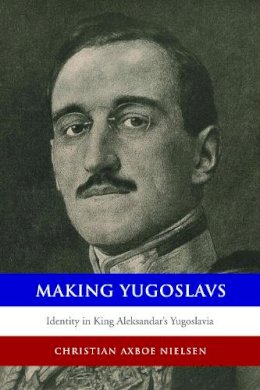
Making Yugoslavs: Identity in King Aleksandar´s Yugoslavia
Christian Axboe Nielsen
When Yugoslavia was created in 1918, the new state was a patchwork of Serbs, Croats, Slovenes, and other ethnic groups. It still was in January 1929, when King Aleksandar suspended the Yugoslav constitution and began an ambitious program to impose a new Yugoslav national identity on his subjects. By the time Aleksandar was killed by an assassin’s bullet five years later, he not only had failed to create a unified Yugoslav nation but his dictatorship had also contributed to an increase in interethnic tensions.
In Making Yugoslavs, Christian Axboe Nielsen uses extensive archival research to explain the failure of the dictatorship’s program of forced nationalization. Focusing on how ordinary Yugoslavs responded to Aleksandar’s nationalization project, the book illuminates an often-ignored era of Yugoslav history whose lessons remain relevant not just for the study of Balkan history but for many multiethnic societies today.
Product Details
About Christian Axboe Nielsen
Reviews for Making Yugoslavs: Identity in King Aleksandar´s Yugoslavia
R.M. Hayden
Choice Magazine vol 52:09:2015
‘Nielsen’s fine book has significantly advanced the discussion of the interwar state of Yugoslav in the twentieth century and of authoritarian politics throughout the region.’
John Paul Newman
Slavonic and East European Review vol 94:01:2016
‘Making Yugoslavia is compelling read for specialists on Yugoslavia, interwar Europe, and national identity.’
Nick Miller
The Historian vol 78:04:2016
